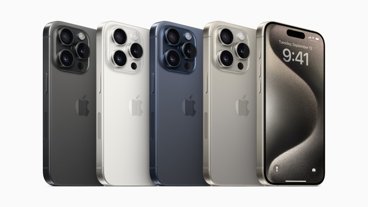AT&T 3G MicroCell to offer unlimited iPhone calling for $20 extra
AT&T hasn't yet set a retail price on its forthcoming new 3G MicroCell appliance, which connects to your existing Internet to supply local 3G voice, SMS/MMS, and data coverage for nearby AT&T customers. However, a report by Engadget Mobile attributed to an anonymous tipster says that the company plans to offer an unlimited calling plan for users for $20 per month.
Bundled with AT&T-supplied Internet (if available in your area), the monthly fee drops to $10, and with AT&T Internet and landline service (if you also pay to have one of those old plug-in type phones), the monthly fee goes away entirely.
It's not clear if the monthly fee for unlimited wireless calling through the device will be mandatory in order to obtain the 3G MicroCell device. According to the photo of official looking marketing collateral included in the report, "3G phones connected to the MicroCell without AT&T Unlimited MicroCell Calling continue to use existing plan minutes."
If unlimited calling is entirely optional, iPhone 3G and 3GS users may be able to buy and install the 3G MicroCell and simply use it to burn their existing plan minutes without paying any additional monthly fees, solving dropped call or delayed SMS issues for users working inside shielded buildings, for example.
Even if obtaining the device requires the additional unlimited calling plan, users may end up saving money by cutting their existing plan minutes and placing most of their calls from their home or work location. Current iPhone service plans with AT&T cost $60 for 450 daytime rollover minutes, $80 for 900, $100 for 1350, or $120 for unlimited.
In either case, other AT&T users who access the MicroCell to place 3G calls, texts or access mobile data will not be charged any differently than if they were to use a regular 3G tower; they will simply eat up their existing plan minutes.
The 3G MicroCell does not create a VoIP alternative to AT&T's network; it simply tunnels 3G voice and data over the user's existing broadband Internet service to AT&T's servers, which process it like any other call handled by its existing 3G cell towers.
AT&T's 3G appliance isn't usable by 3G mobile users on other carriers, nor does it provide GSM/EDGE service usable by the original iPhone model. It will work with any 3G-capable sold by AT&T, however. It's not yet known if the MicroCell supplies the standard 3.6Mbit/sec HDPA service typical of AT&T's current towers, or if it supplies the faster 7.2 service supported by the iPhone 3GS.
Due to broadcasting regulations, users will also be prevented from using the 3G MicroCell in areas where AT&T doesn't officially do business. For example, it can't be installed by users in Vermont or North Dakota or in other countries outside the US; this is enforced by GPS tracking in the device.
Other mobile providers already sell similar "mini cell tower" devices, commonly referred to in the industry as a femtocell, either solely to provide service where coverage is missing or to allow customers to provide their own pipe for unlimited mobile calling. For example, Sprint sells its Airave for $5 per month, or with an unlimited calling plan that costs $10. Verizon sells a femtocell for its 3G users with no monthly fees, but does not provide any unlimited calling option.
T-Mobile provides unlimited calling through its HotSpot@Home service, which costs $10 per month. However, rather than being a 3G femtocell that program uses UMA (Unlicensed Mobile Access), a 3GPP standard for placing mobile calls over WiFi. Unlike femtocells, which work with existing 3G phones by emulating a regular cell tower, UMA requires special hardware support to be built into the phone in order to place calls wherever WiFi service is available.
AT&T is expected to begin rolling out 3G MicroCell devices to users in a limited number of markets over the next couple of weeks, following an extensive beta testing period. Hammered by the iPhone's voracious data demands, AT&T's 3G mobile network has been criticized as severely inadequate by many high profile critics and plenty of frustrated users.
 Prince McLean
Prince McLean










 Malcolm Owen
Malcolm Owen
 Chip Loder
Chip Loder

 William Gallagher
William Gallagher
 Christine McKee
Christine McKee
 Michael Stroup
Michael Stroup
 William Gallagher and Mike Wuerthele
William Gallagher and Mike Wuerthele







